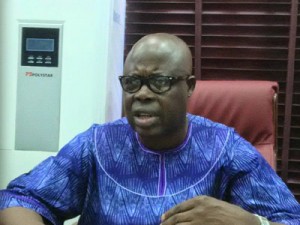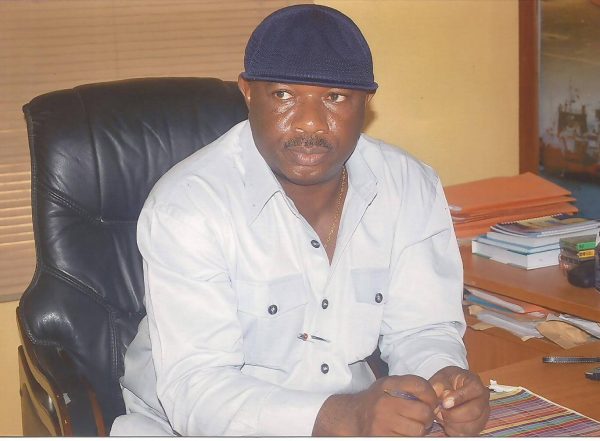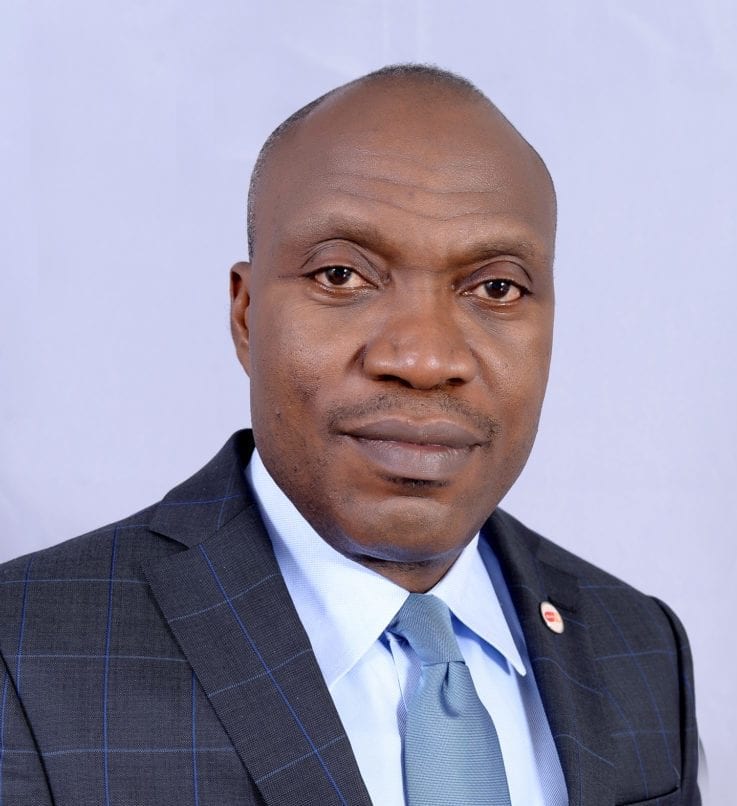Terminal Operators Can’t Increase Charges Without Stakeholders Summit – Shittu

Prince Olayiwola Shittu is National President of the Association of Nigeria Licensed Customs Agents (ANLCA). In this exclusive interview with MMS Plus he bares his mind on some pertinent port sector issues ranging from terminal charges to an assessment of the Minister of Transportation as well as his agenda for the transport sector in 2017.
Excerpt:
The Nigerian Ports Authority (NPA) is insisting that port concessionaires make their payments in dollars which has become a challenge because of the exchange rate. What is your take on this?
We have found out that the insistence of terminal operators to pay in dollars when the currency is not available at the Central Bank of Nigeria (CBN) is endangering the efficiency of service within the ports because eventually the terminal operators would have to increase their charges. At the moment they are bearing the brunt of sourcing for the dollar from the black market and giving it to the Nigerian Ports Authority at the official rate. This can’t continue. It is against the duty of the government to uphold the sovereignty of a nation and the currency of a nation is sovereign. I am sure that very soon the Managing Director, Ms. Hadiza Bala-Usman of NPA would be able to discern the difficulty the terminal operators are going through, although she is acting on the agreement reach before she became Managing Director and she also has her boss, the Minister of Transportation, Hon. Rotimi Amaechi.
What solution would you proffer for this concession payment quagmire?
The terminal operators should be allowed to pay in naira. We are still frowning at Intels which is the terminal operator in Onne, for collecting payments in dollars. How do you do the exchange? Even the CBN says that it is against the law to trade with foreign currency in Nigeria. If you must pay government, then you should be allowed to pay in naira according to the equivalent in the official rate. That is the solution.
Would Customs Agents be protesting over the issues of terminal charges?
No, we are in a dialogue with the terminal operators. The problem is the issue of naira vs dollar exchange rates but we are talking to the government. If they can relax that, the chances of any increment would be minimal. However, the concession agreement state that before any increment is made stakeholders must meet. We are expecting the Nigerian Ports Authority and the Nigerian Shippers Council to call a meeting where the terminal operators should tell us how the payments should be reviewed. We can decide on how much increment is considerate and even suggest to them how they can reduce cost because delay in the positioning of containers also adds to the duel time of the cargo which increases the number of days for the charges. This is the time that everybody has to sacrifice for Nigeria to wake up. We are businessmen. We don’t trade to lose so we shouldn’t be ambushed but it is the responsibility of the government regulatory agencies like NPA and NSC to call for the stakeholders meeting where we can discuss the headway for terminal charges.
What is your opinion on the land border restrictions for importation of vehicles?
Government reserves the right to make such policy and I am fully in support of this. All our vehicles should come through the seaports but the important thing like we told the NPA Managing Director is to work towards the resolution of the prevailing issues that took people to the neighbouring ports. Once that is addressed, the best thing is for our imports to come in through the nation’s ports. I know that Nigerian ports have the capacity to take in all those vehicles.
What is the implication of this restriction from a business perspective?
We are not losing any business. If I was one of them, I would be thinking of how to transfer those vehicles from Cotonou through badges or West African Coast vessels or Shipping lines to Nigeria. We know that Nigeria is the ultimate destination for most of these vehicles. What we are asking the government to do is to give a waiver for an additional grace time for those who have their cargo at the borders to clear it speedily. Some of these people have difficulty shipping it to Nigeria because of the additional cost which also adds to the cost of the vehicles.
We have seen the chopping and sacking style of the Customs under the leadership of Col. Hameed Ali (Rtd). How would you appraise his performance?
This is his style but I know that this happens to Customs officers who have failed in their vows to uphold the tenets of service to their fatherland. It is a betrayal and treasonous. They shouldn’t just stop at sacking them, these officers should be prosecuted. When you sack these officers, they drop their uniforms but return to the ports to aid and abate smugglers so it becomes a revolving chain. That is why we say that Customs officers are taking over our jobs.
The Minister of Transportation, Hon. Rotimi Amaechi has spent over a year in office. How would you deliver his scorecard?
He is not a maritime person. He has been operating as ‘His Excellency, the Governor’ and not a Minister. Once someone has been a Governor, he finds it difficult to fit in as a Minister because as a Minister you need to have patience and give a listening ear to all sorts of opinion but when the toga of a Governor is still in you, you just give orders that must be carried out. This is the problem Amaechi has.
What agenda would you set for the transportation sector in 2017?
The new Managing Director of NPA has already set the agenda. For the first time, we are seeing a masterplan for the port sector. A lot of ports are coming up such as the Ibaka, Badagry, Lekki deep seaports but where is the cargo that would maintain these ports? We shouldn’t only think of establishing ports because the main issue is not the number of port a nation has but the efficiency of the ports. Some ports in the nation are lying fallow like the Koko port, PortHarcourt Area 1, etc., even Lagos that has been touted as the ideal port environment has lost 60% of its cargo. In your port masterplan, I would suggest that we also think of making use of the already existing ports efficiently. We can build ports but not about 4 or 5 coming up at the same.
By Kenneth Jukpor







